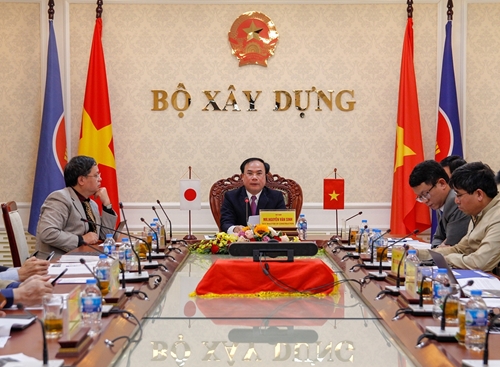Addressing the second high-level meeting of the ASEAN-Japan Smart Cities Network, held online, the Secretary-General also applauded the leadership and commitments of the Vietnamese Government, in its capacity as Chair of the ASEAN Smart Cities Network (ASCN) in 2020, to promoting efforts in smart city development.
    |
 |
|
Deputy Minister of Construction Nguyen Van Sinh (center) co-chairs the meeting from Hanoi. |
The COVID-19 pandemic has revealed the vulnerability of urban areas and impacted urban development models, he said. It has also, however, proven the benefits brought about by the smart city model.
This year, the ASCN completed and adopted a monitoring and evaluation framework aimed at promoting the sharing of methods and experience between ASCN member cities.
Deputy Minister of Construction Nguyen Van Sinh, who co-chaired the meeting, pointed out the adverse impact of urbanisation, such as infrastructure overload, environmental pollution, and increased greenhouse gas emissions.
Given these difficulties, plus the unexpected developments of climate change, the application of science-technology in general and IT in particular in urban management and development is a trend and an inevitable need of countries, especially ASEAN nations, he said.
Delegates at the meeting looked at the development of smart urban areas in each country, and discussed action plans to complete targets set for smart city construction and development.
They also proposed specific mechanisms and actions to maintain connectivity and cooperation between ASEAN and Japan in this regard.
The first high-level meeting of the ASEAN-Japan Smart Cities Network was held in Yokohama last year.
Source: VNA